By Chan Hui Mui/Red Sports
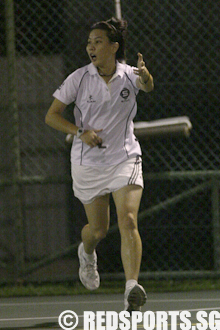
Yu Bee Ling is the only A Badge female umpire in Singapore. (Photo 1 © Koh Yi Zhe/Red Sports)
Yu Bee Ling, 26 and Tan Khiok Sing, 29 are among the top netball umpires in Singapore.
Yu Bee Ling, who started playing netball since the age of 9, was part of the Under-21 squad in 2003 and 2004. Bee Ling is currently the only female A Badge umpire in Singapore and she was named the Netball Super League Umpire of the Year in 2009.
Tan Khiok Sing, a Malaysian, who was part of the Singapore's Men team in Asian Championship that clinched Silver in 2005, recently obtained his A Badge during the 2009 Nations Cup.
Here are their stories.
When and why did you start umpiring?
BL: I started umpiring in 2003 where I first went through the umpiring course. I did not umpire actively until 2005 where I got my C badge.
I wanted to continue to be involved in netball after I stopped competitive play and my friends encouraged me to take up umpiring.
During Netball Super League (NSL) 2008, I had to choose to go for either NSL player selection or be an NSL umpire. I actually filled up the form for NSL players, but in the end, I chose to umpire, and that is when I started my umpiring career.
KS: I took the umpiring course four years ago in 2005 and started umpiring actively in 2006 after I passed the course. I took up umpiring with the intention to know more about netball rules so that I can play the game better.
Can you briefly describe to us what is the process like to become an umpire? What did you go through to get your C Badge, B Badge and A Badge? (A, B and C Badges are ranks, with A Badge as the highest. Different ranks allow umpires to umpire different level of games. Above A Badge, there is International Umpiring Award, this is the highest rank for an umpire.)
BL: When I went for my C badge testing, I wasn’t very interested in umpiring. I just wanted to get a C badge instead of remaining a Cadet umpire and having to wear a red top with a white skirt. (C Badge umpire wears white top with white bottom.)
The test for B badge wasn’t easy. I was tested during one of the NSL games in 2008. It was my first NSL experience. I felt excited and nervous.
Getting an A badge is definitely not easy too. I was tested during the Age Group Championship in Australia in 2009. I remembered there were five testers sitting at different angles and looking at me while I umpired. Three of them are my umpire mentors. It was stressful.
KS: I was very lucky in my umpiring journey. I manage to progress very smoothly, getting one badge a year which is considered very fast.
I was given several opportunities to learn and grow as an umpire. Also, I was able to have my assessors working with me before my tests for the badges. During my umpiring journey, I was able to step up very progressively to reach the umpiring requirements of each badge. Goal setting has also helped me a lot. It constantly reminds me to do better and staying on track to reach the goal that I have set.
What is the largest, most significant match you have umpired in your career?
BL: I think it is the Asian Championship 2009 in Kuala Lumpur, when I had to umpire the final between Singapore and Sri Lanka when one of the Australian umpires was injured. It was a very stressful game as I was worried that I may be biased towards Singapore.
KS: I would say that it's the A Division final in 2009. It was not the highest-level game that I have umpired. However, the stadium was packed with supporters from their own school cheering and yelling, (making the game very exciting).
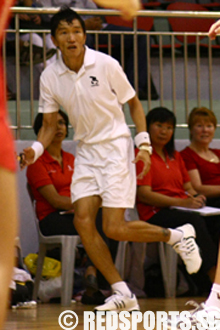
Tan Khiok Sing obtained his A Badge during the Nations Cup 2009. (Photo 2 © Lai Jun Wei/Red Sports)
What's your greatest satisfaction when you are umpiring a game?
BL: It is when a spectator comes up to me and says that you have done a good game.
KS: Knowing that I umpired well in a challenging game.
Was there any difficult situation that you met during umpiring? (with the coaches, players and other officials) How did you overcome them?
BL: There are bound to be situations during umpiring. And that is when we learn. I used to be very affected by coaches especially when I umpired school games. As experience grows, I learnt to overcome the coaches’ shouting. I will mentally prepare myself for the coaches’ shouting and players’ indiscipline (before the game).
KS: There were many. From experience, I learned to manage it properly. Sometimes, we just have to leave it behind us.
Guys are not really often associated with netball. What do your friends/family think about you being so involved in netball?
KS: Most of my friends are netballers too. My family knows that I am a sports fanatic. I’m sure they are happy for me being able to do something that I like as a living.
So how do you feel about (the guy's) performance? What about men's participation in netball?
BL: I think more men are involved in Netball now. Frankly, I don’t like to umpire mixed games. I am still trying to overcome that mental barrier and hopefully I will grow from there.
How was it like being an umpire coach?
BL: It is not easy, as you have to make sure that you are not giving the wrong information. You have to identify their mistakes as fast as possible because sometimes we only see that umpire for one game.
KS: I’ve just started coaching umpires this year. I love to share what I know with people. I’m still learning to be better.
Do you encourage students to start umpiring? Why?
BL and KS: Of course I encourage students to start umpiring. In fact, overseas, they have 12 years old girls starting to umpire at school levels and even higher level.
How do students take up umpiring?
BL and KS: Most netball players should know the basic rules of netball. From there, they can start umpiring during school trainings or friendly matches. If they are interested to go further into umpiring, they can sign up the ACTive School Mentors Programme or the Level One umpiring course.
What does it take to be a good umpire? What should they look out for?
BL: To be an umpire, you have to be confident when you blow your whistle. Voice has to be loud and clear, able to identify infringements. Know the rules and apply them, this is the hardest part. Stamina to run is important too.
KS: Good attitude and correct mindset towards umpiring make a good umpire. Also, constantly seek to improve and learn to be better at umpiring.
What would you say to those who want to start umpiring and those who are currently umpiring?
BL: Umpiring is not an easy task. There are many challenges. You will love the challenges when you start doing it.
Keep umpiring. Practice makes perfect. Keep umpiring so as to be consistent in your calls.
KS: For those who want to start, Welcome! It’s not very hard but I won’t say that it’s easy too. Don’t rush, give yourself some time to learn. For those currently umpiring, do your best and enjoy!
What are you looking forward to in umpiring in 2010?
BL: I think it will be the Commonwealth games.
KS: Big games like Netball Super League, Australia Netball League and Nations Cup if I’m selected to umpire. And, running umpire courses and coaching umpires.
Coming so far, what else do you hope to achieve in umpiring, and by what age?
BL: For now, I think I still have many things to work on and improve, such as consistency. I hope to achieve to be a good umpire coach where umpires can understand and improve after giving them feedbacks.
KS: I am aiming for International Umpiring Award and hope to achieve it within the next 5 years if possible.
Who do you look up to in netball and/or umpiring and why?
BL:I look up to my umpire mentors and coaches. The feedback they have provided me are important for my learning and growing.
When you are not umpiring, what will you be up to?
BL: I am currently pursuing my degree in Biomedical Science of University of Western Australia at PSB Academy.
KS: I will be playing netball. I play basketball occasionally and hit the beach for volleyball during the weekends
How do you balance between work, family, umpiring and other commitments?
BL: It is not easy especially now I am studying part-time and the leagues and games are mostly at night. I try to umpire when I do not have class that night. I will also try to go down as Umpire coach when I am available.
KS: Easily managed. I’m a full time netballer (coach, umpire and umpire coach) and I'm not attached.

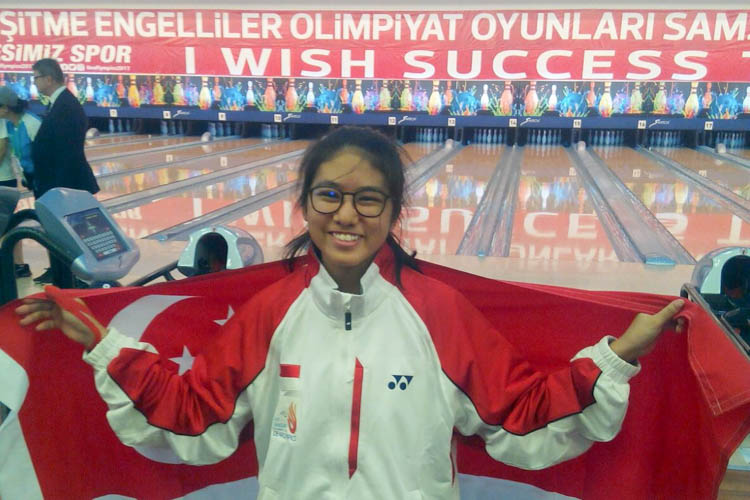
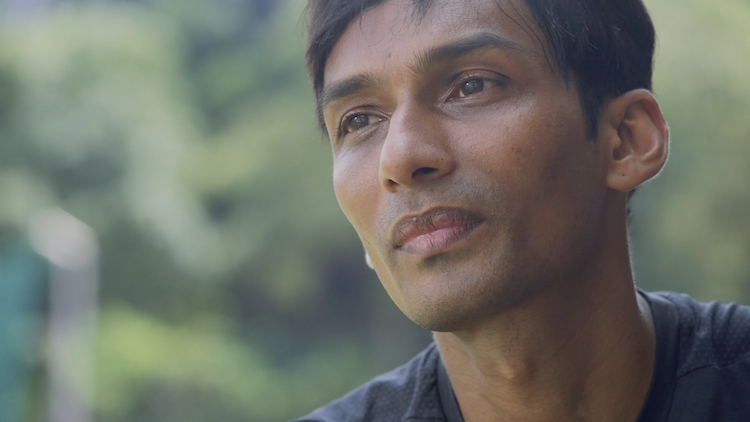
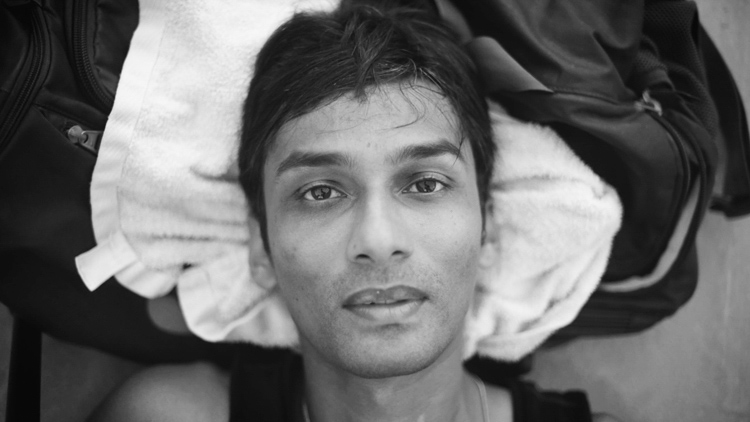
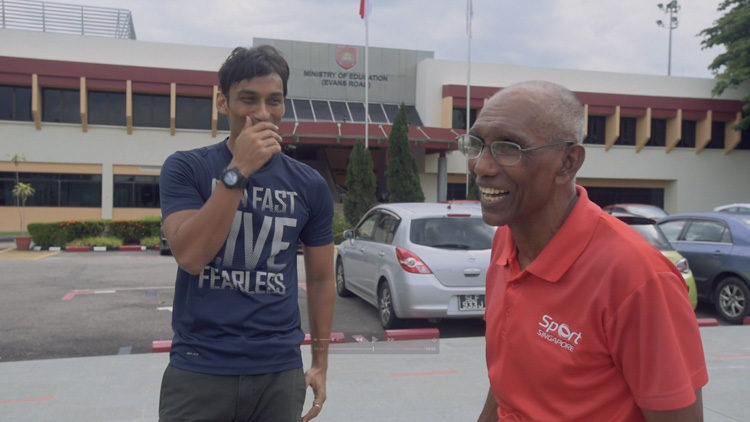
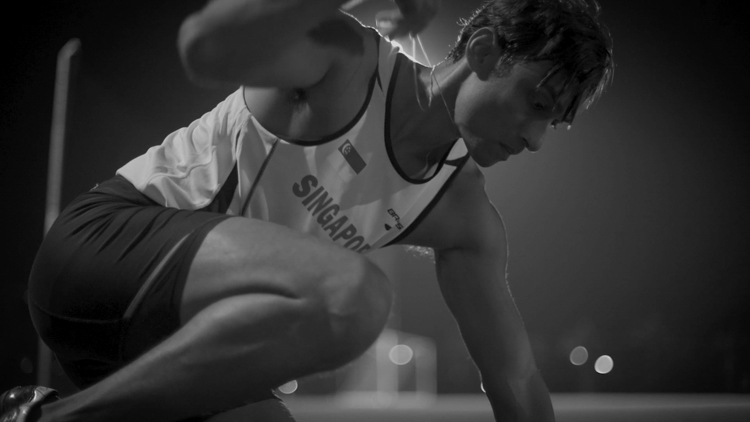
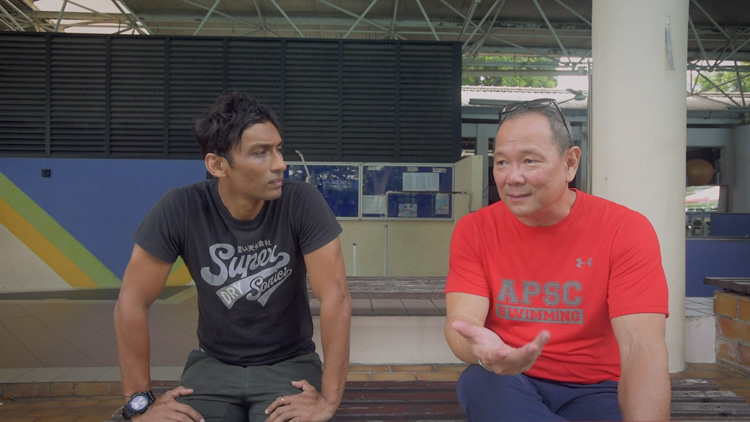
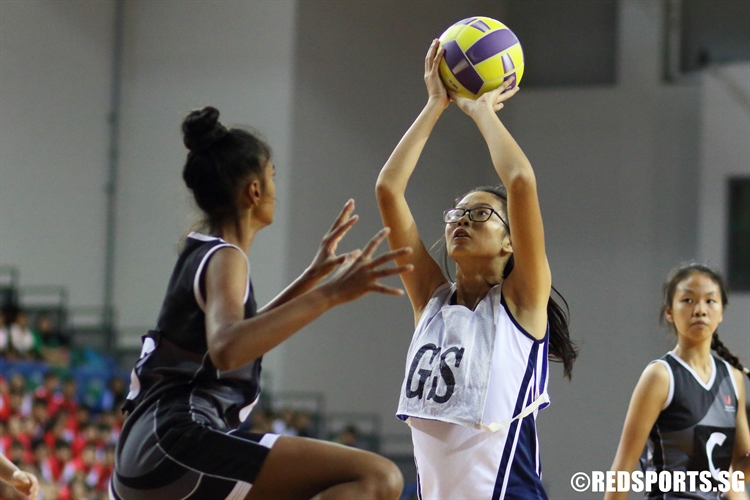
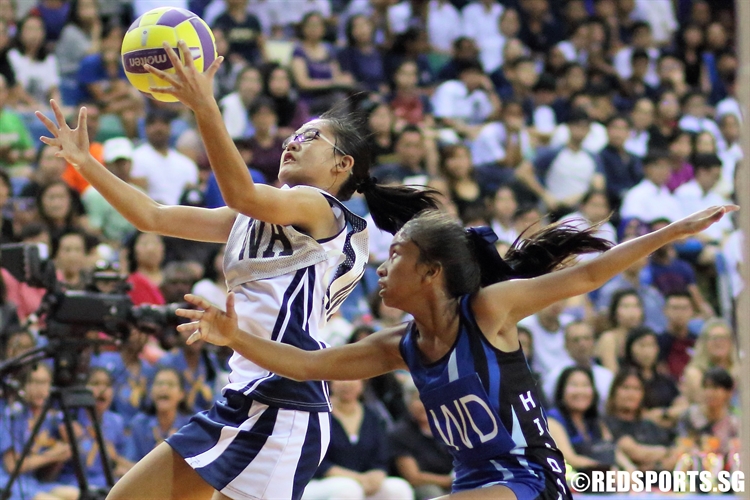
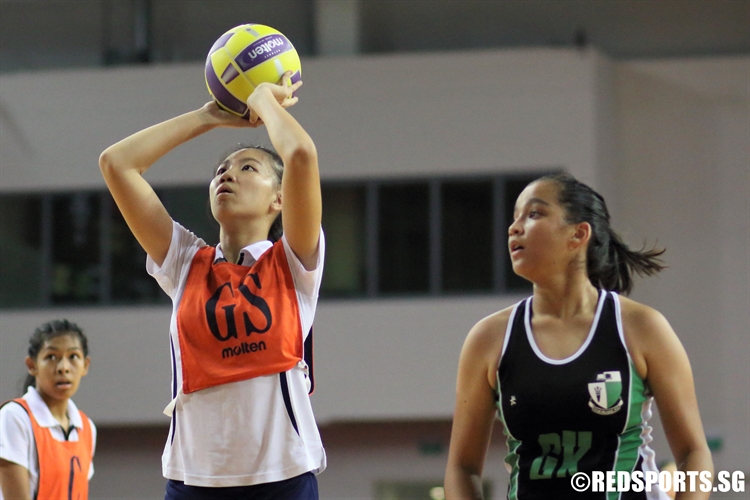
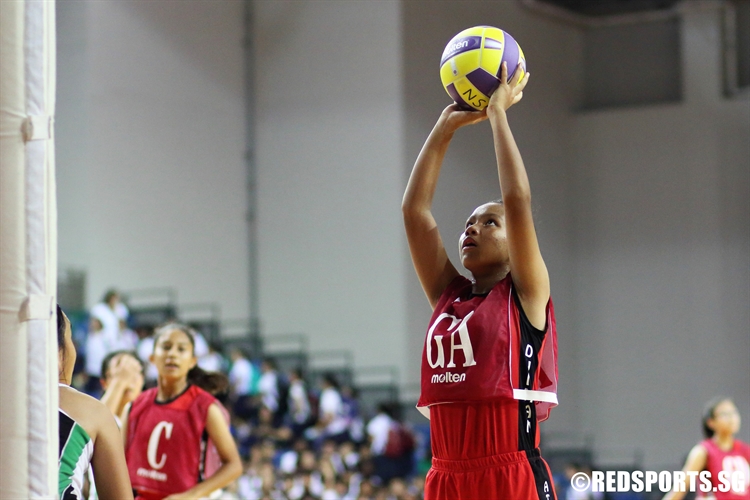
bee ling is the best coach in the would !!!!!!!!!!!!!! she teach our school and and all of doing more better !!!!!!!!!!!!!!!!! and now bee ling is going to study so i realy want to say my dear coach plsssss come and work hard soooo that u will come back and teach us agina !!!!!!!!!!!!!!!! PLSSSSSSSSSSSS my dear coach come back we will wait for u to come back if they do not wait for u do not forgot that hav want person is waiting for u to come back the person is me i will wait for u to coam bak and teach me agina , my realy dear coach soooo plssssssssssss come !!!!!!!!!!!!!!!!!!!!!!!!!!!! i will wait for u forever !!!!!!!!!!!!!!11
KS, Jia You! Keep learning and growing in your netball empiring and coaching. You’ll have our full support all time. :p
Bee Ling, you go girl! ;D